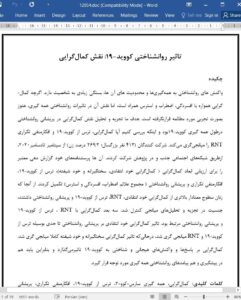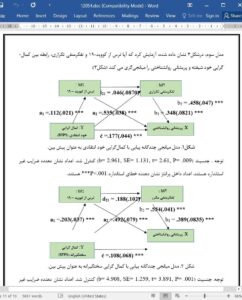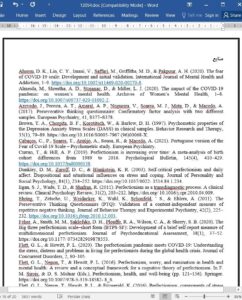Abstract
Psychological reactions to pandemics and their constraints depend heavily on personality. Although perfectionism is consistently associated to depression, anxiety and stress, its role in the pandemics' psychological impact has not been yet empirically studied. Our aim was to analyze the role of perfectionism in psychological distress during the pandemic of COVID-19, testing whether it is mediated by fear of COVID-19 and repetitive negative thinking/RNT. Participants (N = 413 adults; 269.2% women) were recruited from September until December 2020, via social networks. They completed self-report validated questionnaires to evaluate perfectionism dimensions (self-critical, rigid and narcissistic perfectionism), fear of COVID-19, RNT and psychological distress (sum of anxiety, depression and stress symptoms). As women had significantly higher levels of self-critical perfectionism, RNT, fear of COVID-19 and psychological distress, gender was controlled in mediation analysis. The three perfectionism dimensions correlated with RNT, fear of COVID-19 and psychological distress. The effect of self-critical perfectionism on psychological distress was partially mediated by fear of COVID-19 and RNT whereas the effect of rigid and narcissistic perfectionism was fully mediated. Perfectionism influences emotional and cognitive responses to the COVID-19 and therefore should be considered both in the prevention and psychological consequences of the pandemic.
1. Introduction
In humankind’s history, many catastrophic and devastating pandemics have occurred. Despite the enormous societal impact of these events, their psychological and psychiatric aspects have not been sufficiently explored, being overshadowed by the sanitary and socioeconomic consequences. Only at the beginning of this century, with the SARS pandemic, in 2003, the effects of pandemics on mental health began to be systematically investigated, showing that psychological effects are long-lasting and can be more persistent than physical problems (Huremovi´c, 2019).










